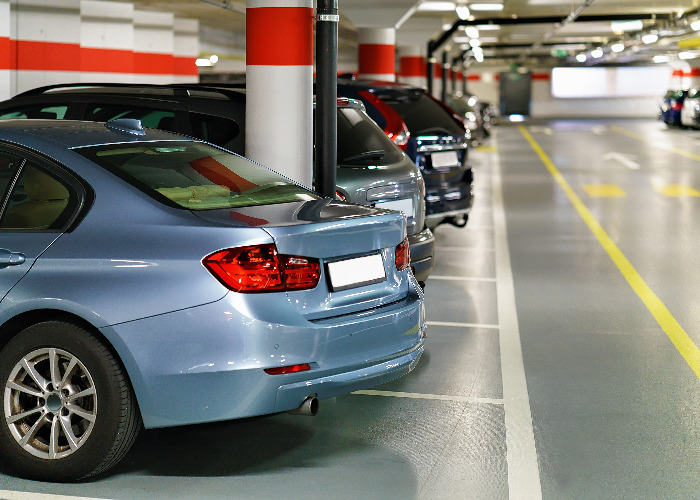How to cut the cost of train station parking

Parking at a train station can be expensive. Here’s how to reduce the cost and drive down your commuting bill.
Sections
The most expensive train station car parks
Reading station has the highest daily parking charges of 100 commuter towns and cities according to new research.
Complaint service Resolver found some travellers have to pay as much as £23.70 a day in order to park their cars near a station - which over five days amounts to a whopping £118.50.
And that's before you've factored in the eye-wateringly high rail fares that commuters must pay.
For example, a commuter in Reading wanting to travel into London can get a standard anytime return ticket for £46.00, which together with the cost of parking at the station means they have to pay £69.70 a day in order to get to work.
Below are the top 10 most expensive train station car parks, according to Resolver's research.
|
Start |
Destination |
One-day station parking cost |
Anytime return ticket cost |
Train journey time |
Real cost of daily commute |
|
Reading |
London |
£23.70 |
£46.00 |
28 |
£69.70 |
|
Southampton Airport Parkway |
London |
£15.00 |
£81.70 |
68 |
£96.70 |
|
Guildford |
London |
£14.50 |
£24.60 |
38 |
£39.10 |
|
Brighton |
London |
£13.10 |
£40.50 |
72 |
£53.60 |
|
Ebbsfleet |
London |
£12.60 |
£32.80 |
19 |
£45.40 |
|
Macclesfield |
Manchester |
£12.00 |
£14.60 |
22 |
£26.60 |
|
Coventry |
Birmingham |
£12.00 |
£7.30 |
29 |
£19.30 |
|
Milton Keynes |
London |
£10.80 |
£39.90 |
37 |
£50.70 |
|
Billericay |
London |
£10.60 |
£22.70 |
34 |
£33.30 |
|
Woking |
London |
£10.50 |
£21.00 |
31 |
£31.50 |
Source: Resolver
If driving to a station before taking the train is part of your daily commute, here’s how you can your costs.
Shop around
If you have to drive to a station every day for work make sure you shop around for the best place to park.
Parkopedia is a website that can help you do this. You just need to enter your destination to get a list of the nearest parking spaces and the fees.
For example, in Reading, I was able to find parking for £7 for a day that is just a 10-minute walk from the station.
This is £16.70 cheaper than using the long-stay car park at Reading station for the same time.
Yourparkingspace.so.uk can also help you compares prices for weekly, monthly and daily rates at car parks near your station.
Look for free parking
If you are willing to take a chance every day there may be free parking near your station to take advantage of.
Freeparkingspace.co.uk will tell you which streets are best to target for free parking spaces across the country.
Just pop in a location and it comes up with a list of options in the area.
Most spaces are within a short walk of the main stations, however, the length of stay may be shorter than a whole day so be sure to check.
Rent a driveway
One of the best ways to save on the cost of parking near a station is to check if anyone with a property nearby is willing to rent their parking space out.
There are a handful of websites that you can use to try and find these places like parkonmydrive.com and JustPark.com.
In Reading we found a space five minutes from the station charging just £5 a day; significantly cheaper than parking at the station.
Buy a season ticket
If there isn’t much other choice near your station you can cut the cost of parking with a monthly, quarterly or annual season ticket for the station car park.
At Reading station long-stay car park, for example, you can buy a season ticket for £220 a month or £1,850 a year, which beats the cost of buying a daily ticket which would be over £470 a month or £6,110 a year.
Need to buy a season ticket on credit? Compare 0% purchase cards
Change your station
It might also be worth taking a look at an alternative station to start your commute from. There could be one a little further away that is cheaper to park at and easier to find a space in.
In Reading for example you might be able to start your journey at Tilehurst station, which is about three miles away and offers similar routes.
Parking at this station costs £5.20 for 24 hours and a standard return ticket to London is the same cost as the Reading to London ticket at £46.
Share the ride
If you drive to the station to start your commute, you could save by starting or joining a car sharing scheme.
Depending on how many people are sharing, the costs of commuting can be reduced by half or more.
You can find details of various schemes operating across the UK at Carshare.com.
Some employers even operate their own networks of car sharing, though you don't have to go down the official route - if you live near a work colleague, why not propose your own car share initiative, alternating the days you each take the wheel?
Walk or cycle
If your station isn’t too far away, consider cycling or walking to save money.
You can check if your employer uses the Cycle to Work scheme, which allows staff to buy a bike as a tax-free benefit or ask them to start it up.
Comments
Be the first to comment
Do you want to comment on this article? You need to be signed in for this feature